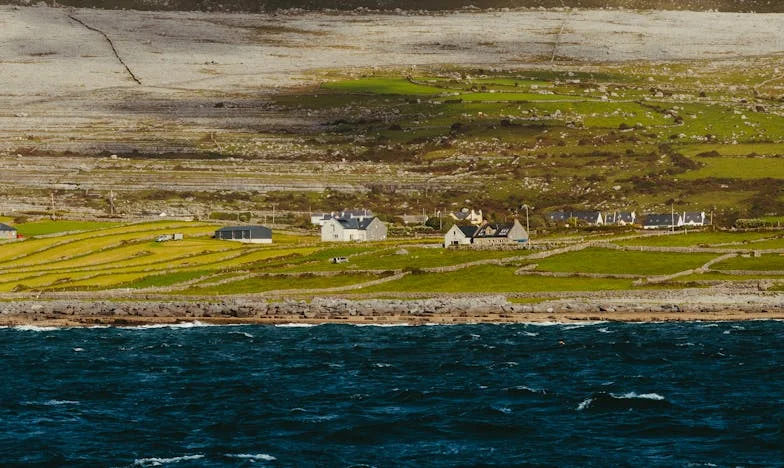No Way Back: A One-Way Road
“Maybe you want to wash his underwear too? His socks? He’s a grown man, let him figure it out.”
The words hit me like a slap, sharp and cold. My husband, Jack, stood with his arms crossed, eyes narrowed, an old football game muting on the TV behind him. I was halfway into my coat, fumbling with the zipper, my hands suddenly clumsy. The living room was washed in gray winter light, the dog snoring in the corner, the clock ticking far too loud.
I paused. For a moment, I wanted to argue back—God, how I wanted to. But after seven years of marriage, I’d learned that my voice bounced right off him, as if our home was lined with invisible, soundproof walls. So I just slipped my hands into my pockets, zipped up, and stared at the floor.
“Maybe if you stopped babying your brother, he’d grow up,” Jack said, softer now, but with an edge that cut just the same. “You can’t save everyone, Emily.”
I wanted to scream at him that it wasn’t about saving anyone. That my brother, Mike, had just lost his job, that he was sleeping in his battered pickup in the Walmart parking lot, and this—this small act of kindness, dropping off groceries and a pair of clean sweatpants—wasn’t about enabling him. It was about being human. About being a sister.
But Jack didn’t see it that way. He never did.
As I drove through the icy streets of our Ohio suburb, the world outside blurred by the tears I refused to let fall. I replayed the fight in my head, the hundred others that led to this one. The way Jack’s disappointment seeped into every corner of our life: the meals I cooked, the money I made, the way I loved my family. Nothing was ever enough.
At the stoplight, my phone buzzed. Mom: “Let us know how Mike is. Love you.”
I typed back, “Will do. Love you too.”
When I found Mike shivering in his truck, he tried to brush it all off with a laugh. “Hey, Em. Nice wheels. You running away from home?”
I handed him the bag of groceries and the sweatpants, trying to smile. “You look like hell.”
He grinned, but his eyes were red-rimmed. “Yeah, well. Divorce looks good on no one.”
We sat in silence for a while, and I envied his honesty. Mike was a mess, but at least he owned it. I’d spent years pretending everything in my life was fine, especially to Mom, especially to myself. That night, as I drove back, I wondered when I’d stopped being honest, even with the person in the mirror.
Jack was asleep when I got home. Not a word, not a glance. The apartment felt smaller than ever, the silence suffocating. I stood in the kitchen, staring at my reflection in the oven door, and for the first time, I asked myself: What am I doing here? Who am I if I’m not Jack’s wife, not the fixer, not the peacemaker?
The days blurred. Jack’s resentment grew in small, insidious ways: the dishes left for me, the snide comments about my family, the way he controlled the thermostat, the grocery list, the TV remote. He never hit me; it wasn’t like that. No one would look at us and see abuse. But I was shrinking, day by day, until even my laughter sounded foreign to me.
One evening, Jack came home late. He tossed his jacket over a chair and looked at me, really looked, for the first time in months.
“You’re not happy, are you?”
I shook my head. My hands were shaking. “No. I’m not.”
He closed his eyes for a long moment. “Then why are you still here?”
I didn’t have an answer. Maybe for the same reason my mom stayed with my dad until he drank himself into an early grave. Maybe because I believed, deep down, that I didn’t deserve more.
That night, I packed a bag. Just one. Some clothes, a photo of Mike and me as kids, the battered copy of To Kill a Mockingbird my dad gave me before he died. I left a note on the kitchen table: “I can’t do this anymore. I need to find myself again.”
I slept on my mom’s couch for a month. I found a job at the public library, shelving books, helping kids with their homework. I went to therapy. I called Mike every night until he finally landed a job at the auto shop and got a real apartment. I started reading again, eating again, laughing again.
Jack never called. Not once. I heard from a friend that he was telling people I’d abandoned him. Maybe, in a way, I did. I abandoned the version of myself that believed love meant losing yourself.
People talk about divorce like it’s a one-way road, like you can never go back. Maybe that’s true. But sometimes, the only way to save yourself is to walk away, to choose the unknown over the unbearable.
Now, two years later, I still wonder if I did the right thing. Some nights, when the world is quiet, I think about all the ways I tried to fix what was broken. But then I remember the feeling of that first morning in my own place, sunlight on my face, coffee brewing just for me, and I know: I finally chose myself.
Is it selfish to want happiness? Or is it the bravest thing we can do? What would you have done in my place?
